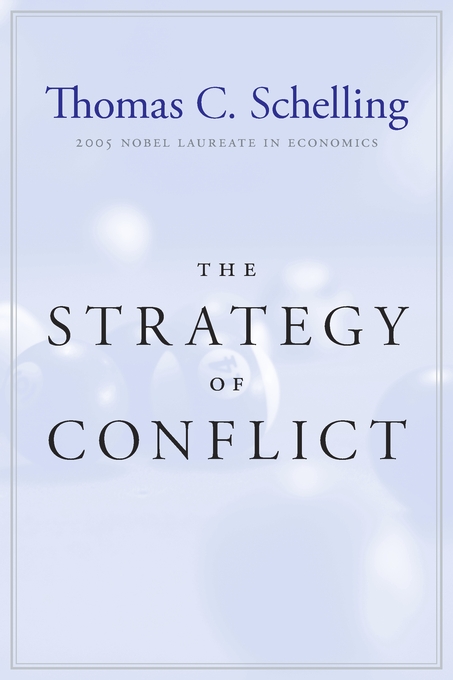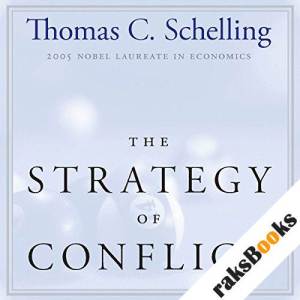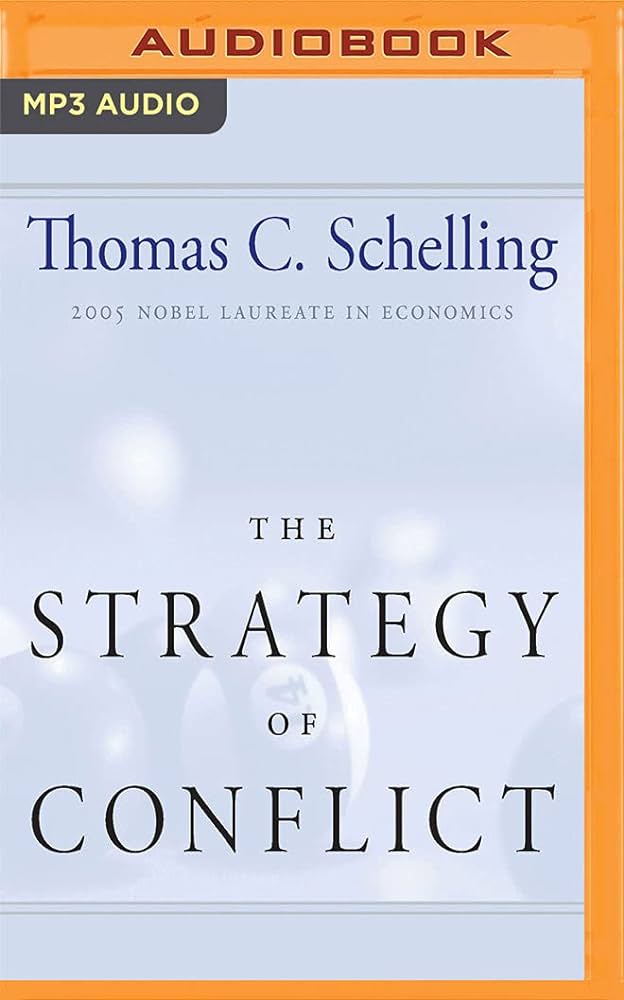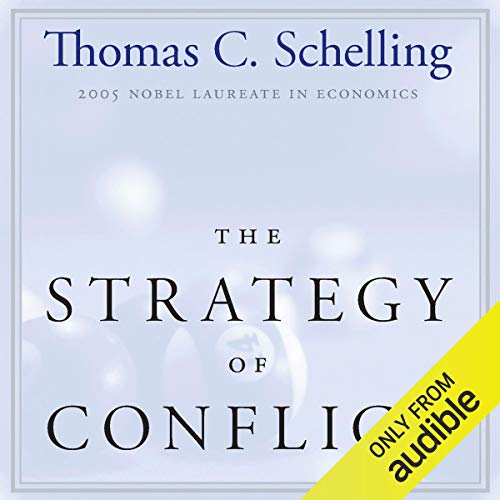Thomas C. Schelling’s “The Strategy of Conflict” audiobook explores game theory and strategic thinking in conflict situations. This seminal work has influenced economics, political science, and military strategy.
Thomas C. Schelling’s “The Strategy of Conflict” is a groundbreaking book that delves into the intricacies of game theory and strategic behavior. Published in 1960, it revolutionized the way experts think about conflict and cooperation. Schelling’s insights help understand the strategic dynamics in negotiations, wars, and everyday interactions.
The audiobook format offers an accessible way to grasp these complex concepts. It remains essential for those interested in strategic decision-making, economics, and political science. The clear narration helps listeners engage with the material, making it easier to apply Schelling’s ideas in real-world scenarios.

Exploring The Genesis Of Strategic Conflict
Thomas C. Schelling’s audiobook, “The Strategy of Conflict,” delves into the dynamics of strategic interactions. It is a cornerstone in understanding game theory and strategic thinking.
Schelling’s Background
Thomas C. Schelling was an American economist and professor. He taught at prestigious institutions like Harvard and Yale. His work in game theory earned him the Nobel Prize in Economics in 2005.
Schelling’s insights into strategic conflict were groundbreaking. He explored how individuals and nations make decisions in competitive situations. His work laid the foundation for modern conflict resolution strategies.
The Cold War Context
The Cold War era was a time of intense rivalry. The United States and the Soviet Union were locked in a global struggle for supremacy. This period saw the rise of nuclear weapons and the threat of mutual destruction.
Schelling’s theories became highly relevant during this time. His work provided a framework for understanding the strategic interactions between superpowers. He introduced concepts like deterrence and credible threats.
His strategies helped policymakers navigate the complexities of the Cold War. They offered insights into how to avoid catastrophic conflicts. Schelling’s ideas remain crucial in understanding modern strategic interactions.

Core Concepts And Theories
Thomas C. Schelling’s audiobook ‘The Strategy of Conflict’ dives deep into strategic behavior. It focuses on how decision-making happens in conflict situations. The book is a cornerstone in understanding strategic thinking.
This section covers the core concepts and theories presented. It includes game theory, deterrence, and communication in conflict.
Game Theory In International Relations
Game theory is a key concept in Schelling’s work. It explains how countries interact in conflicts. Game theory uses mathematical models to study decision-making. It helps predict outcomes based on choices and strategies.
Countries often act in their best interest. They consider the actions and reactions of others. This can lead to cooperation or conflict. For example, two countries might choose to avoid war by negotiating. They weigh the costs and benefits of their actions.
| Concept | Description |
|---|---|
| Zero-sum Game | One side’s gain is another side’s loss. |
| Non-zero-sum Game | Both sides can benefit or lose. |
The Role Of Deterrence
Deterrence is about preventing actions through threats. Schelling explains how powerful deterrence can be. It works by making the cost of an action too high. For example, a country might threaten retaliation if attacked. This threat can prevent the attack in the first place.
There are different types of deterrence:
- Direct Deterrence: Preventing attacks on oneself.
- Extended Deterrence: Protecting allies from attacks.
Communication In Conflict
Communication plays a vital role in conflicts. Schelling emphasizes clear and credible communication. Misunderstandings can escalate conflicts. Clear messages about intentions and capabilities are crucial.
Effective communication can help in several ways:
- Clarifying intentions.
- Building trust.
- Reducing uncertainty.
For instance, countries may use diplomatic channels to express their positions. They might also use public statements to signal their intentions.
Impact And Legacy
Thomas C. Schelling’s ‘The Strategy of Conflict’ is a groundbreaking work. This audiobook has left a lasting impact on various fields. Its insights remain relevant even today.
Influencing Nuclear Strategy
Schelling changed how leaders think about nuclear strategy. His work emphasized the importance of credible threats. He showed how carefully crafted strategies could prevent conflicts. Schelling’s ideas helped shape the Cold War policies. Leaders used his principles to avoid nuclear war.
Schelling’s Contributions To Economics
Schelling also made significant contributions to economics. He introduced game theory to understand strategic behavior. His work explained how individuals make decisions in competitive settings. Schelling’s ideas are applied in various economic models today.
- Game theory in economics
- Strategic decision-making
- Behavioral economics insights
The Audiobook’s Relevance Today
The audiobook remains relevant in today’s complex world. Modern leaders and strategists still refer to Schelling’s work. It helps in understanding conflict resolution and strategic planning. The audiobook provides timeless wisdom for current and future generations.
| Aspect | Relevance |
|---|---|
| Conflict Resolution | Timeless strategies |
| Strategic Planning | Modern applications |
| Decision-Making | Behavioral insights |

Conclusion
The “Strategy of Conflict” audiobook by Thomas C. Schelling offers valuable insights into game theory and strategic thinking. This classic work remains relevant for understanding modern conflicts and negotiations. Enhance your strategic skills by diving into Schelling’s profound theories. Don’t miss the chance to explore this timeless masterpiece.



